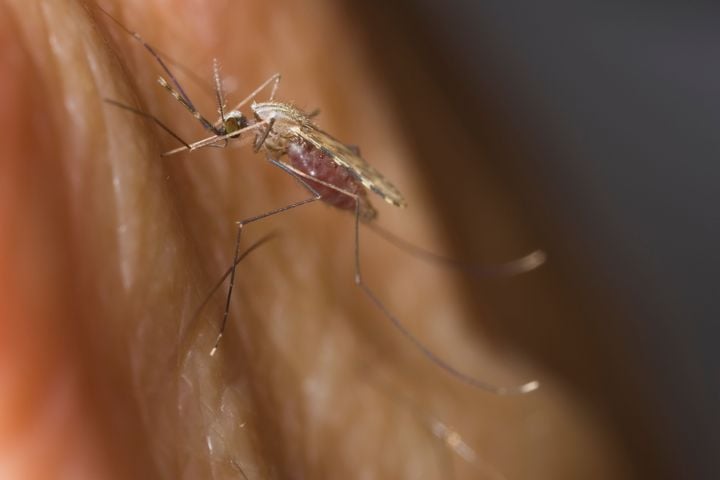
News
September 19, 2025
Genetic clues to how malaria-carrying mosquitoes evade control identified
British scientists have discovered genetic clues into how malaria-carrying mosquitoes are evading efforts to control them.
British scientists have made a significant breakthrough in understanding how malaria-carrying mosquitoes are increasingly dodging control measures. This discovery, unveiled recently, sheds light on the genetic mechanisms that allow these disease-spreading insects to survive insecticides and other interventions designed to eradicate them. The research offers crucial insights that could pave the way for more effective strategies in the fight against malaria.
Malaria, a life-threatening disease transmitted through the bite of infected Anopheles mosquitoes, remains a major global health challenge. Despite decades of intensive efforts, including insecticide-treated bed nets and indoor residual spraying, malaria continues to claim hundreds of thousands of lives each year, particularly in sub-Saharan Africa. A growing concern among health officials and researchers has been the increasing resistance of mosquitoes to commonly used insecticides.
The team of British scientists focused their research on identifying the specific genes that enable mosquitoes to develop this resistance. By analyzing the genetic makeup of mosquito populations from various regions, they were able to pinpoint key genetic markers associated with insecticide resistance. These markers act as signposts, revealing the evolutionary pathways mosquitoes are taking to overcome the effects of the chemicals designed to kill them.
The researchers found that certain genes, when mutated or expressed at higher levels, allow mosquitoes to detoxify or bypass the effects of insecticides. This allows the insects to survive exposure to the chemicals, reproduce, and pass on their resistance genes to future generations, leading to the rapid spread of insecticide-resistant populations.
Understanding these genetic mechanisms is crucial for developing new and more effective control strategies. Armed with this knowledge, researchers can now explore alternative insecticides that target different biological pathways in mosquitoes, or develop strategies to suppress the genes responsible for resistance. This might involve using gene-editing techniques or developing synergists – chemicals that can enhance the effectiveness of existing insecticides by blocking the resistance mechanisms.
The findings also underscore the importance of ongoing surveillance and monitoring of mosquito populations to track the spread of insecticide resistance genes. This will allow public health officials to adapt their control strategies in real-time and prevent the widespread emergence of resistant mosquito populations, ultimately contributing to a more effective and sustainable fight against malaria. The research represents a vital step forward in the ongoing battle to protect vulnerable populations from this devastating disease.
Malaria, a life-threatening disease transmitted through the bite of infected Anopheles mosquitoes, remains a major global health challenge. Despite decades of intensive efforts, including insecticide-treated bed nets and indoor residual spraying, malaria continues to claim hundreds of thousands of lives each year, particularly in sub-Saharan Africa. A growing concern among health officials and researchers has been the increasing resistance of mosquitoes to commonly used insecticides.
The team of British scientists focused their research on identifying the specific genes that enable mosquitoes to develop this resistance. By analyzing the genetic makeup of mosquito populations from various regions, they were able to pinpoint key genetic markers associated with insecticide resistance. These markers act as signposts, revealing the evolutionary pathways mosquitoes are taking to overcome the effects of the chemicals designed to kill them.
The researchers found that certain genes, when mutated or expressed at higher levels, allow mosquitoes to detoxify or bypass the effects of insecticides. This allows the insects to survive exposure to the chemicals, reproduce, and pass on their resistance genes to future generations, leading to the rapid spread of insecticide-resistant populations.
Understanding these genetic mechanisms is crucial for developing new and more effective control strategies. Armed with this knowledge, researchers can now explore alternative insecticides that target different biological pathways in mosquitoes, or develop strategies to suppress the genes responsible for resistance. This might involve using gene-editing techniques or developing synergists – chemicals that can enhance the effectiveness of existing insecticides by blocking the resistance mechanisms.
The findings also underscore the importance of ongoing surveillance and monitoring of mosquito populations to track the spread of insecticide resistance genes. This will allow public health officials to adapt their control strategies in real-time and prevent the widespread emergence of resistant mosquito populations, ultimately contributing to a more effective and sustainable fight against malaria. The research represents a vital step forward in the ongoing battle to protect vulnerable populations from this devastating disease.
Category:
Politics